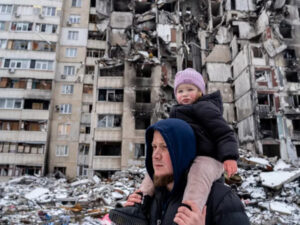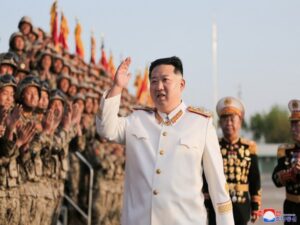
Kabul [Afghanistan], July 25 (ANI): Due to looming economic problems, post the Taliban took over Afghanistan, a number of families and children in order to feed themselves are forced to work in brick factories. The owners of brick factories said that in just three brick factories 170 families with their children are engaged in hard labour, reported Tolo News.
“There are 170 families which work to make bricks, and there are around 60 people which have come here without family, all of these families have come from Jalalabad,” said Awozubillah, the owner of a brick factory. The owners of these factories also stated that following the increase in the price of coal, the income of workers in these factories has decreased, reported Tolo News.
Families working at the factories said that in order to find food, their children have been kicked out of school and are busy working in the factory from morning to evening.
“I work here to provide a piece of bread for my family, though it doesn’t help that much,” said Javid, a labourer working at the factory.
Nine-year-old Emran, who left school in order to feed his family, said that two of his sisters are also working in the factory from morning till evening, and at the end of the day the total of their income is less than five hundred Afghanis (Afghan currency), reported Tolo News.
“We have to work in order to provide a piece of bread for eating,” said Emran, another child labourer working in the factory.
Jan Alam, who is in charge of bringing families from Nangarhar to Kabul, said they pay 350 Afghanis for each family to make 1000 bricks. He added that so far he brought 70 families to the factory, reported Tolo News. “Children of the families are bringing sand and their elders are working to make bricks,” said Alam Jan, a resident of Nangarhar.
According to the US Special Inspector General for Afghanistan Reconstruction (SIGAR), at least 900,000 Afghans have lost their jobs since the Taliban took control last August. Working women are disproportionately affected, according to SIGAR, with women’s employment expected to fall by 21 per cent by mid-2022, reported The Khaama Press.
Since the Taliban took power, unemployment has skyrocketed, and poverty across many parts of the country has put millions of people at risk. According to the International Labour Organization, more than 500,000 Afghan workers lost their jobs in the third quarter of 2021, and the number of people who will lose their jobs since the Taliban took control is expected to reach 700,000 to 900,000 people by mid-2022, reported Khaama Press.
Due to four decades of conflict, severe drought, and pandemics, Afghanistan’s economy was already collapsing. After the Taliban seized power following the hasty withdrawal of US soldiers, the international community froze Afghanistan’s assets and withheld help. (ANI)
Taliban not to accept international favours if “against Islam”

Kabul [Afghanistan], July 25 (ANI): Taliban on Sunday said that it is ready for engagement with the international community, but if “they are against Islam, are not acceptable.” “We just follow Allah, Prophet Mohammad, the Caliph of Rashidun and Companions in implementation of our law. We don’t accept anything from anyone which is against Islam,” said Acting Minister of Vice and Virtue Mohammad Khalid Hanafi.
Hanafi, while visiting Ghazni decried sanctions on the Taliban by the international community, reported Tolo News. The Vice and Virtue minister also called on government employees to adjust their appearance based on Sharia. “All employees that are in the provinces, districts and ministries should make their appearances according to Islamic values,” Hanafi said. He said that after the Taliban swept into power, the women are observing the hijab “100 per cent,” reported Tolo News.
Moreover, the United Nations mission in Geneva said that the latest United Nations Assistance Mission in Afghanistan (UNAMA) report reveals a “disturbing and consistent pattern of human rights violations” by the Taliban.
The UN mission in Afghanistan released a report outlining the human rights situation prevailing in Afghanistan over the 10 months since the Taliban takeover.
The mission said that while the report highlights aspects of the Taliban’s human rights violations, it does not fully reflect the number of violations and abuses reflected in this report, and the full scope of the deterioration of the human rights situation since August of last year.
UN mission said that this could be attributed to the methodology used for the report and or lack of access to places where torture and ill-treatment, unlawful killings, arbitrary arrests and detentions, and forced displacement are taking place in Afghanistan.
The report undoubtedly reveals a disturbing and consistent pattern of human rights violations by the Taliban, in line with the previous findings of the High Commissioner for Human Rights, the Special Rapporteur on the situation of human rights in Afghanistan, and international and non-governmental organizations.
Meanwhile, the provincial governor, Mohammad Ishaq Akhundzada, called on the forces of the Taliban to respect the people, reported Tolo News. “Those who stand in the checkpoints, or are in a district office or another department, they should address the problems of the people,” he said. (ANI)



















